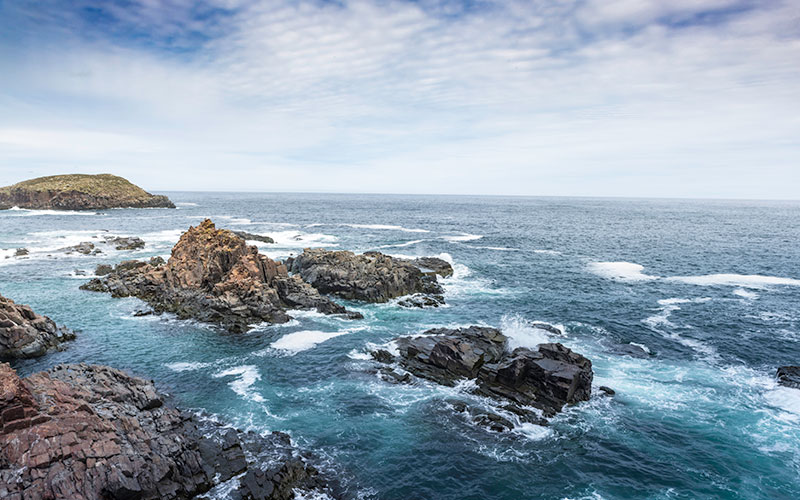Mobilizing Indigenous priorities and knowledge
In the summer of 2021, Oceana Canada brought together participants from both Atlantic and Pacific coasts representing a number of First Nations, Treaty Tables and Indigenous research organizations to discuss Indigenous priorities and approaches for rebuilding wild fish populations.^ A clear message emerged from the workshop: shared decision-making and a new narrative are required.
Participants stressed that Indigenous Knowledge Systems and ways of knowing should be incorporated into fisheries management by being considered on an equal footing with DFO science contributions and with opportunities for separate Indigenous-led assessments.

Credit: iStock/jimfeng
The federal government must be mindful not to conduct “checkbox” consultations. Rather, it must meaningfully engage with Indigenous Peoples to make decisions — and those decisions must be informed by Indigenous Knowledge Systems and Two-Eyed Seeing. Indigenous Knowledge Systems emphasize localized knowledge that changes from place to place. They reflect the unique culture, histories and worldviews of Indigenous Peoples who have stewarded their local ecosystems for millennia. Two-Eyed Seeing combines the strengths of Indigenous knowledge and ways of knowing with those of the mainstream to ensure actions taken today don’t compromise the future of a species or ecosystem.
The recommendations in the report represent the views held by the workshop participants and are not the official positions of Oceana Canada or any Indigenous organization affiliated with this event.
